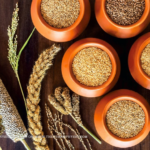In recent years, plant-based diets have gained tremendous popularity, not only among vegans and vegetarians but also among athletes and fitness enthusiasts. A common question that arises is whether plant-based proteins can effectively support muscle recovery and growth, especially when compared to animal-based proteins. Let’s delve into the science behind plant-based proteins and their role in post-workout recovery.
Understanding Muscle Recovery
After a workout, muscles experience tiny tears that need to be repaired to grow stronger. This repair process is fueled by muscle protein synthesis (MPS), which relies on dietary protein to supply essential amino acids (EAAs)—the building blocks of muscle.
Key amino acids like leucine, a type of branched-chain amino acid (BCAA), play a critical role in kickstarting MPS. The quality and type of protein consumed post-workout determine how effectively your body recovers and builds muscle.
Plant-Based vs. Animal-Based Proteins: The Basics
Animal proteins like whey and casein are considered “complete proteins” because they contain all nine EAAs in optimal ratios. Most plant-based proteins, however, are considered “incomplete” due to missing or lower levels of certain EAAs like methionine or lysine.
Key Differences
Despite these differences, plant-based proteins can be just as effective when consumed strategically.
Benefits of Plant-Based Proteins for Muscle Recovery
1. Rich in Micronutrients
Many plant-based protein sources, such as legumes and seeds, are also packed with vitamins, minerals, and antioxidants that support recovery.
2. Anti-Inflammatory Properties
Unlike animal proteins, plant proteins are often rich in phytonutrients and antioxidants that combat oxidative stress, promoting faster muscle repair.
3. Heart-Healthy Option
Plant-based diets are typically low in cholesterol and saturated fats, which benefit cardiovascular health.
4. Gut Health Support
The fiber in plant proteins helps maintain a healthy gut microbiome, indirectly supporting muscle recovery by improving nutrient absorption.
Challenges of Plant-Based Proteins (and How to Overcome Them)
1. Low Leucine Content
Leucine is a key driver of MPS, and plant proteins like rice or pea protein may contain less leucine compared to whey.
Solution:
Incorporate leucine-rich plant proteins like soy or supplements with added leucine.
2. Lower Digestibility
Plant proteins often contain antinutrients like phytates that may reduce their digestibility.
Solution:
Opt for fermented or sprouted versions of plant proteins, as they enhance bioavailability.
3. Need for Complementary Proteins
Few plant-based sources are “complete proteins.”
Solution:
Combine foods like rice and beans, hummus and whole-grain pita, or peanut butter on whole-grain bread to create a complete amino acid profile.
Top Plant-Based Protein Sources for Recovery
Legumes and Pulses
Lentils: 18g protein per cooked cup
Chickpeas: 15g protein per cooked cup
Grains and Seeds
Quinoa: 8g protein per cooked cup (complete protein)
Chia Seeds: 5g protein per ounce (rich in omega-3s)
Nuts and Nut Butters
Almonds: 7g protein per 1/4 cup
Peanut Butter: 8g protein per 2 tablespoons
Protein Powders
Soy Protein Isolate: High in leucine and a complete protein
Pea-Rice Protein Blends: Complementary amino acid profiles
How to Optimize Plant-Based Protein for Muscle Recovery
1. Post-Workout Timing
Consume 20–30 grams of protein within 30 minutes post-workout to maximize MPS.
2. Combine Protein Sources
Pair foods to achieve a complete amino acid profile, such as beans and whole grains.
3. Use Protein Supplements
Choose high-quality plant-based protein powders with a leucine content of at least 2.5g per serving.
4. Track Your Intake
Ensure you’re consuming at least 1.6–2.2 grams of protein per kilogram of body weight daily for optimal recovery.
Sample Plant-Based Post-Workout Meals
1. Protein Smoothie
Ingredients: 1 scoop pea-rice protein powder, almond milk, frozen berries, and spinach.
Protein Content: ~25g
2. Quinoa and Chickpea Salad
Ingredients: Cooked quinoa, chickpeas, chopped vegetables, olive oil, and lemon.
Protein Content: ~20g
3. Tofu Stir-Fry
Ingredients: Firm tofu, brown rice, broccoli, and soy sauce.
Protein Content: ~30g
Conclusion
Plant-based proteins can absolutely support muscle recovery when consumed thoughtfully. By diversifying protein sources, timing your intake strategically, and using supplements if needed, you can build a diet that meets your nutritional needs and aligns with your fitness goals.
Switching to plant-based proteins isn’t just a health-conscious choice—it’s a sustainable step towards improving your overall well-being and reducing your environmental footprint.
Are you ready to fuel your recovery with plant-based proteins? Let’s start today!





